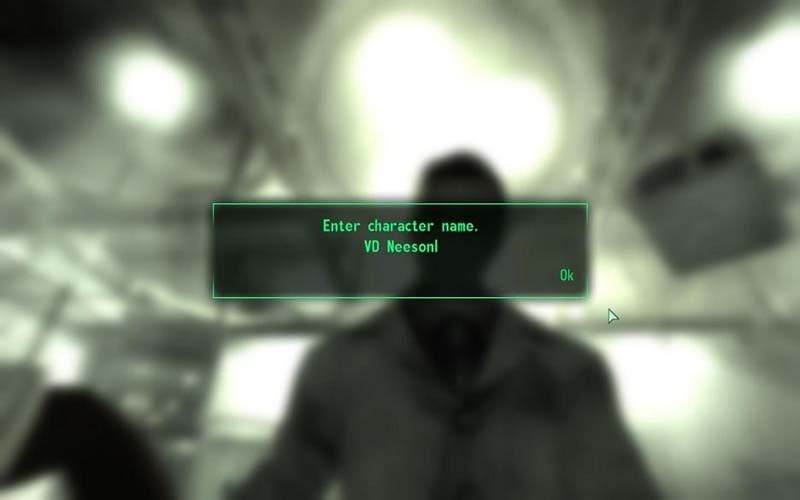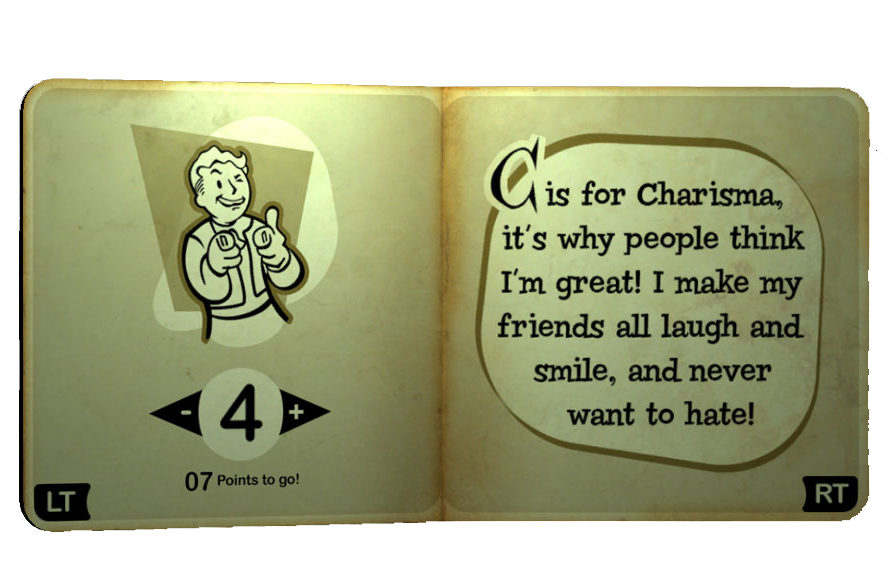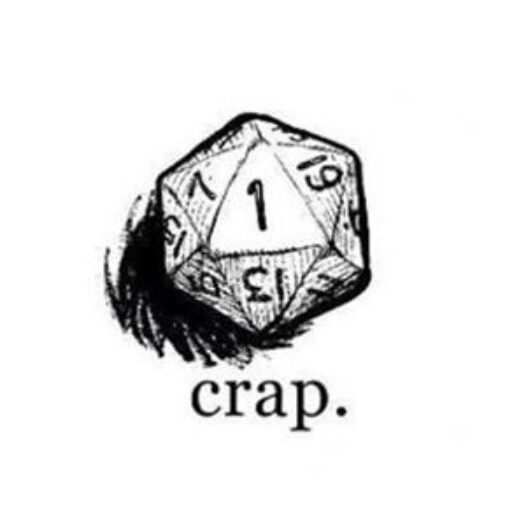 Amber, the diceless roleplaying game, was kind of like that. I read with interest all about the character creation as an auction. If you bid highest for Strength, you were the strongest person in the party. The system was comparative, with how you described your actions important as modifiers, but generally Strong people always being able to beat slightly less strong people. I think that’s a fascinating and bold idea that I want nothing to do with. Maybe if I was more invested in the Roger Zelazny books, I’d give it a shot. But it seems to be a system designed to portray fantasy soap operas and that kind of turned me off. I’m probably super wrong, but that’s not a boat I feel inclined to push out.
I don’t know quite enough about Mouse Guard to pass judgement… but that’s kind of my point. Read a bit about it, start zoning out because it strays a bit from a comfort zone…
Amber, the diceless roleplaying game, was kind of like that. I read with interest all about the character creation as an auction. If you bid highest for Strength, you were the strongest person in the party. The system was comparative, with how you described your actions important as modifiers, but generally Strong people always being able to beat slightly less strong people. I think that’s a fascinating and bold idea that I want nothing to do with. Maybe if I was more invested in the Roger Zelazny books, I’d give it a shot. But it seems to be a system designed to portray fantasy soap operas and that kind of turned me off. I’m probably super wrong, but that’s not a boat I feel inclined to push out.
I don’t know quite enough about Mouse Guard to pass judgement… but that’s kind of my point. Read a bit about it, start zoning out because it strays a bit from a comfort zone…


 And they played the blind Investigators blind. They had to focus on using their character’s other senses to get by and as the creepiness eventually ramped up, had to continually make the choice between keeping the bandages down and taking them off. Jonathan moved around the room as he spoke to them as NPCs, adding to the disorientation. The players wouldn’t really know what was happening to who, because they wouldn’t be able to witness any other direct interactions. He reports that it was interesting to see who kept their blindfolds on and who took them off. Steven and Ray actually look quite content with theirs on.
Anyway, an interesting diversion and one that would be quite memorable, I’m sure. Especially if Jonathan had gone along with the second part of the plan, which was to dress up as the sexy nurse while they were all blindfolded. No photos of that were included. I’m reading Reality Is Broken just now which is interesting in the way all literature about why people play games is interesting – briefly – and one of the Bernard Suits quotes is “Games are the voluntary attempt to overcome unnecessary obstacles”. The object of golf, for example is to get the ball in the hole. Super easy, pick up the ball, walk over to the whole, put it in the hole. The GAME of golf is to NOT pick the ball up, but to hit it into the hole from quite far away with a stick, in fewer whacks of that stick than your opponents. To be interested in playing games, is to enjoy this process, not the end result – and the blindfold strike me as a really interesting unnecessary obstacle that it would be fun to try to work around.
And they played the blind Investigators blind. They had to focus on using their character’s other senses to get by and as the creepiness eventually ramped up, had to continually make the choice between keeping the bandages down and taking them off. Jonathan moved around the room as he spoke to them as NPCs, adding to the disorientation. The players wouldn’t really know what was happening to who, because they wouldn’t be able to witness any other direct interactions. He reports that it was interesting to see who kept their blindfolds on and who took them off. Steven and Ray actually look quite content with theirs on.
Anyway, an interesting diversion and one that would be quite memorable, I’m sure. Especially if Jonathan had gone along with the second part of the plan, which was to dress up as the sexy nurse while they were all blindfolded. No photos of that were included. I’m reading Reality Is Broken just now which is interesting in the way all literature about why people play games is interesting – briefly – and one of the Bernard Suits quotes is “Games are the voluntary attempt to overcome unnecessary obstacles”. The object of golf, for example is to get the ball in the hole. Super easy, pick up the ball, walk over to the whole, put it in the hole. The GAME of golf is to NOT pick the ball up, but to hit it into the hole from quite far away with a stick, in fewer whacks of that stick than your opponents. To be interested in playing games, is to enjoy this process, not the end result – and the blindfold strike me as a really interesting unnecessary obstacle that it would be fun to try to work around.

 Boom, that’s two entries in the character sheet and all you’ve done is play out that scene. The next scenes involve you at various stages of childhood – mastering the basic controls by dicking around with a ball as a toddler, beginning to assess the style of play that is best suited to you through moral choices and taking a work placement exam that starts you off with your skill bonuses.
Boom, that’s two entries in the character sheet and all you’ve done is play out that scene. The next scenes involve you at various stages of childhood – mastering the basic controls by dicking around with a ball as a toddler, beginning to assess the style of play that is best suited to you through moral choices and taking a work placement exam that starts you off with your skill bonuses.
 While it is clear that you are creating your character, that isn’t to say that the story stops while you do it. How you create the character is part of the story.
I’m less ambitious than that.
I tried to get Liam Neeson to help you make your characters, but evidently he is busy, Mr Big Shot Wolf Punching Movie Actor. Part of the process is made easier by Paizo doing away with the level 1 Feat for Adventure Paths. Instead, you get two Traits, one of which is tied to the AP’s background in some way. I’m strongly considering a small table of Traits for characters of Varisian origin who may have been indirectly influenced by the events and characters of ROTL: some kind of specific bonus for members of the Dropwad dynasty, or those who attended Corwin’s School for Gifted Half-Breeds for a few years, or Black Arrow recruits who were on their way to Fort Rannick and never made it, or Sandpointians who’ve put up with all sorts of shit.
In rough draft form, character creation for the next Pathfinder game will consist of:
1: Story intro… not background, actual start.
2: An auction for who gets to pick their class/race/name first. This may not be a big deal to some people, may be to others. But I definitely don’t want any more Don/Dagfinns, Albedon/Arradins or Tersplink/Torgors… Makes record keeping a pain in the ass.
3: Attribute rolls & race assignment.
4: Optional Random Trait*.
5: Class assignment.
6: Choose one trait, or if you opted for a Random Trait at (4), roll another Random trait.
7: Skills + Feats + Class Choices
8: Story background.
9: Choose AP Trait
10: Start playing.
For reasons that will become obvious at the time, spell selection and equipment purchase isn’t something that needs to happen right away. So that should save some time too.
(* You make the choice before choosing your class either to have two randomly rolled traits and one chosen AP Trait OR one chosen Trait and one chosen AP Trait.)
This is enough experimentation for me, at least for now. But one that will allow us to start playing right away and isn’t held back by anyone getting everything just right. You start with the bare bones and work your way into a full fledged adventurer. Wouldn’t work for all games, but it’ll work for what I have planned. In the AP modules themselves, there are quite a few changes to how things are done, or at least what constitutes doing well and making progress, and I’m excited to see how they work.
Does this website have a ramble tag? It should…
Meanwhile, I’m playing Witcher2 (Polish RPG, Some really great things and some really mediocre things, but it goes for cheap at game stores.) and getting excited about Cyberpunk made by the same people.
Witcher2 Flavour:
http://www.g4tv.com/videos/57097/the-witcher-2-assassins-of-kings-intro-cinematic-trailer/
Cyberpunk 2077 (Remember when the RPG was called Cyberpunk 2020?) Flavour:
http://www.cyberpunk.net/
While it is clear that you are creating your character, that isn’t to say that the story stops while you do it. How you create the character is part of the story.
I’m less ambitious than that.
I tried to get Liam Neeson to help you make your characters, but evidently he is busy, Mr Big Shot Wolf Punching Movie Actor. Part of the process is made easier by Paizo doing away with the level 1 Feat for Adventure Paths. Instead, you get two Traits, one of which is tied to the AP’s background in some way. I’m strongly considering a small table of Traits for characters of Varisian origin who may have been indirectly influenced by the events and characters of ROTL: some kind of specific bonus for members of the Dropwad dynasty, or those who attended Corwin’s School for Gifted Half-Breeds for a few years, or Black Arrow recruits who were on their way to Fort Rannick and never made it, or Sandpointians who’ve put up with all sorts of shit.
In rough draft form, character creation for the next Pathfinder game will consist of:
1: Story intro… not background, actual start.
2: An auction for who gets to pick their class/race/name first. This may not be a big deal to some people, may be to others. But I definitely don’t want any more Don/Dagfinns, Albedon/Arradins or Tersplink/Torgors… Makes record keeping a pain in the ass.
3: Attribute rolls & race assignment.
4: Optional Random Trait*.
5: Class assignment.
6: Choose one trait, or if you opted for a Random Trait at (4), roll another Random trait.
7: Skills + Feats + Class Choices
8: Story background.
9: Choose AP Trait
10: Start playing.
For reasons that will become obvious at the time, spell selection and equipment purchase isn’t something that needs to happen right away. So that should save some time too.
(* You make the choice before choosing your class either to have two randomly rolled traits and one chosen AP Trait OR one chosen Trait and one chosen AP Trait.)
This is enough experimentation for me, at least for now. But one that will allow us to start playing right away and isn’t held back by anyone getting everything just right. You start with the bare bones and work your way into a full fledged adventurer. Wouldn’t work for all games, but it’ll work for what I have planned. In the AP modules themselves, there are quite a few changes to how things are done, or at least what constitutes doing well and making progress, and I’m excited to see how they work.
Does this website have a ramble tag? It should…
Meanwhile, I’m playing Witcher2 (Polish RPG, Some really great things and some really mediocre things, but it goes for cheap at game stores.) and getting excited about Cyberpunk made by the same people.
Witcher2 Flavour:
http://www.g4tv.com/videos/57097/the-witcher-2-assassins-of-kings-intro-cinematic-trailer/
Cyberpunk 2077 (Remember when the RPG was called Cyberpunk 2020?) Flavour:
http://www.cyberpunk.net/





I listened to an EXHAUSTIVE review of a Mouse Guard game back before I lost my patience with the D6 Generation podcast. Their review style is to recount, moment-by-moment and mechanic-by-mechanic an entire session of playing out a new game. No joke, it can take 2 hours for them to get through one. I can’t listen to it anymore now that I’m not just zoning out at my desk for 6 hours a day at my old job, but it gives you a pretty good feel for what a game is like… because it takes as much time to get through as it would to play it, but the podcast is free.
Anyway, Mouse Guard seems like it would be kind of spiffy in the hands of a group of very well-acquainted people that have similar play styles. There’s dice in it, but there isn’t a lot of situations where you do things like ask the game master “what knowledge check is going to tell me what weapon to use on this monster?” The DM still makes some kind of decision about how the die roll will work, but it’s more based on what characters and events (like back story and recent events that make things harder). There’s a lot of play in it, but it seems like it’s more conversational.
I guess that system comes from other settings where you don’t have to feel like you’re role playing a Saturday morning cartoon. I’d be willing to try it, but I think those storytelling-style games wouldn’t work super well for our pun/dick joke-fueled beer-drinking engine style of role playing.